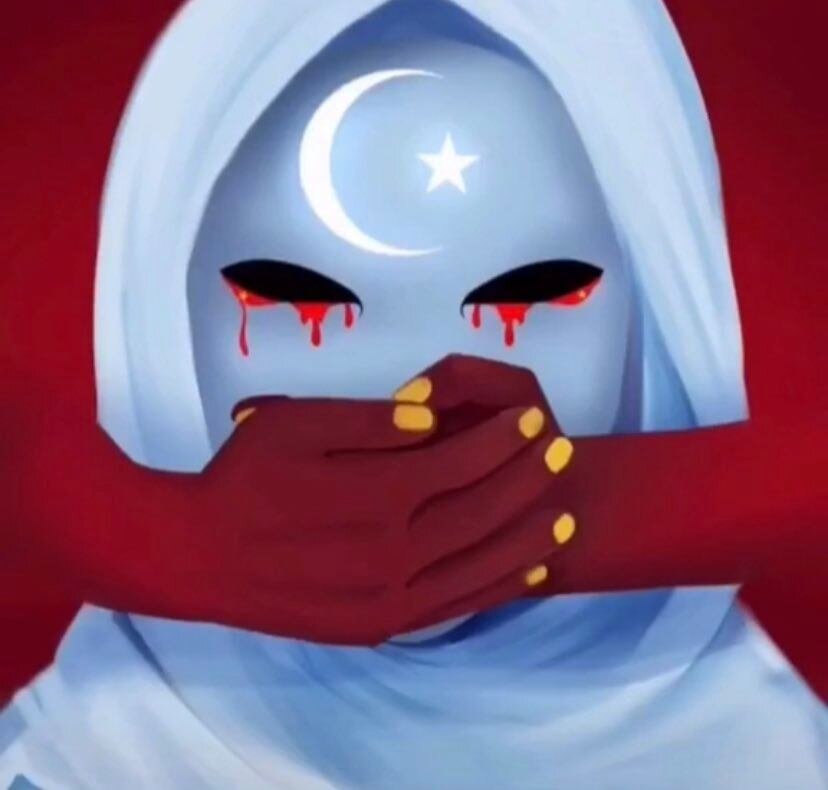By Sylvia Mikha
The article reflects the opinions of the contributors, with the UNSW Law Society Inc. proud to facilitate their publication. UNSW Law Society Inc. is not affiliated with any political party.
In a current social climate of turmoil and volatility, of uncertainty and apathy, there is one push for humanity that has always remained constant: stopping the Uyghur genocide.
Uyghurs are a Muslim-minority in China who are persecuted because of their religion. Not only are they being detained, tortured and heavily surveillanced, but their culture and heritage is being made to evaporate in what will only lead to disastrous intergenerational outcomes, mercilessly removing the culture off the face of the Earth.
The minority has been forced into concentration camps and are barred from practicing their religion. They are made to drink alcohol and are prohibited from speaking their native language. Most abhorrently, however, Uyghur women are forcefully sterilised, forced to have abortions and are forced to have birth control implants. This has led to an alarming decrease in Uyghur birth rates.
These acts amount to a cultural and demographic genocide.
Why is International Law not intervening?
There has been a loud and sustained outcry against such acts, but the International Law pillars that are meant to prosecute the perpetrators are stifled by technicalities. The ICC and ICJ are both impeded by bureaucracy and their limited powers, leaving the victims of this genocide stranded in a state of perpretual limbo.
The premier international body to charge and trial people with the crime of genocide is the International Criminal Court (ICC), a subsidiary of the United Nations.
A nation is under the jurisdiction of the ICC only if they are a party to the Rome Statute, which establishes the jurisdictions, processes and powers of the court.
China is not a signatory to the Rome Statute. This immediately bars them from being investigated and charged by the court. However, a recent application has been made to the ICC by Uyghur activists claiming that the court does have jurisdiction. This notion is due to the fact that some of the genocidal acts occurred in Cambodia and Tajikistan, who are both signatories to the Rome Statute. This is yet to be decided.
If the country is not a party to the Statute, the United Nations Security Council (UNSC) can refer matters to the court. However, since China has veto power in the council and are denying allegations of the genocide, it unlikely, almost impossible, that the UNSC will ever refer the matter to the ICC. China has the absolute power to block such resolutions.
Essentially, the ICC is powerless.
Another international pillar is the International Court of Justice (ICJ). Here, nations can initiate claims against other countries regarding international law. One party may bring an action against China regarding a breach of the Convention on the Prevention and Punishment of the Crime of Genocide (‘Genocide Convention’).
China is a party to the court and can appear before the court. 192 other countries are also members of the court. However, no proceedings to apply the Genocide Convention have been initiated in the court by any of the many members.
The economic tension countries are facing
We may be able to speculate why: who wants to challenge the economic powerhouse of China? In fact, we don’t need to speculate: it’s been confirmed.
Recently, the United States’ Donald Trump admitted he hesitated in condemning the genocide over fears of jeapordising trade talks with China.
Similarly, in 2011, Belarus received US$1 Billion in financial support from China and in 2019, the European nation was provided with a further US$500 million loan. The two countries also joined forces for the China-Belarus Industrial Park, cited as creating ‘tax-benefits’ in a ‘favourable geographic location’ with entry into EU markets. With such an economic partnership, it can be easily inferred why Belarus led the charge to defend China’s policies in a statement to the UN, claiming the Uyghur policies were in the name of ‘counter-terrorism’ and ‘de-radicalisation’.
The international community is stuck between ethics and economics.
Australia is not immune to this spectacle. Recently, there have been concerns over the Queensland State Government’s contract with train manufacturer New Generation Rollingstock after allegations that the firm has sourced parts for manufacturing from companies alleged to have used Uyghur slave labour. If substantiated, the government will be required to detail how it will respond to and mitigate these slavery risks under the Modern Slavery Act 2018.
However, there have been statements, albeit fringing on the realm of being lacklustre, by countries who have not been completely bought by China’s economy. 22 countries, including Australia, wrote and signed a letter to the UN High Commissioner for Human Rights in July 2019, expressing concern about the treatment of the Uyghur minority in China.
On an international scale, that’s pretty much the story. The UN, ICC and ICJ are all powerless, and countries fear the economic fallout from challenging China.
The Power of Activism
However, community activism is still smouldering, both in the traditional media landscape, and in social media.
As aforementioned, the Chinese government has denied all allegations of genocide. However, compelling and irrefutable evidence of the genocide is being continually exposed by traditional media outlets. The New York Times exposed over 400 internal Chinese government documents which detail and confirm the detention, sterilisation and government techniques to keep all details secret. Similarly, a recent series on UK Media’s ITV network has further exposed and confirmed the realities for Uyghurs in China, interviewing doctors forced to perform hysterectomies, as well as survivors and refugees of the regime.
Even Australia’s media has gotten involved, with the ABC’s Four Corners also delving into the plight of Uyghur rights.
Similarly, social media has also promoted awareness of the genocide and called for intervention.
A rising social media platform, Tik Tok, was used to initiate a dialogue concerning this atrocity, with one user, Feroza Aziz, creating a video about the genocide. She ridiculed the UN for failing to stop the genocide, and calls for greater awareness and intervention to help the victims. The video was viewed over 1.4 million times before it was removed by the Chinese-owned platform.
Twitter hashtags have also become the epicentre of Uyghur-supporting movements. When it was revealed that Disney had shot its new film, Mulan, in the province of China home to the Uyghur genocide, the #BoycottMulan movement was born.
Various faith leaders from around the world have also released a conjoined statement questioning the international community’s commitments, or lack thereof, to preserve human rights.
Community sentiment is clear: more (anything at all, really), needs to be done to stop this genocide. There is a large and overwhelming cultural push, but the international community is still hesitant.
The chronicles of the Uyghur genocide are ongoing, but we can see China’s superpower status makes other countries cower at the thought of challenging them, regardless of the pressures in the media.
While the international community balks, the Uyghurs’ future is evaporating.


